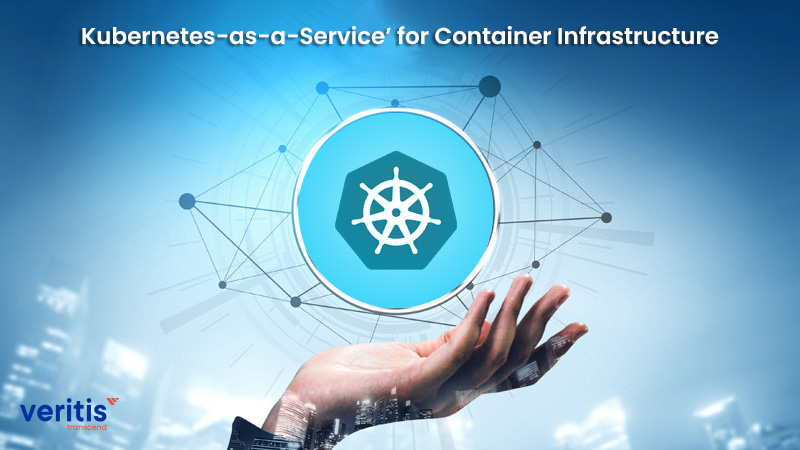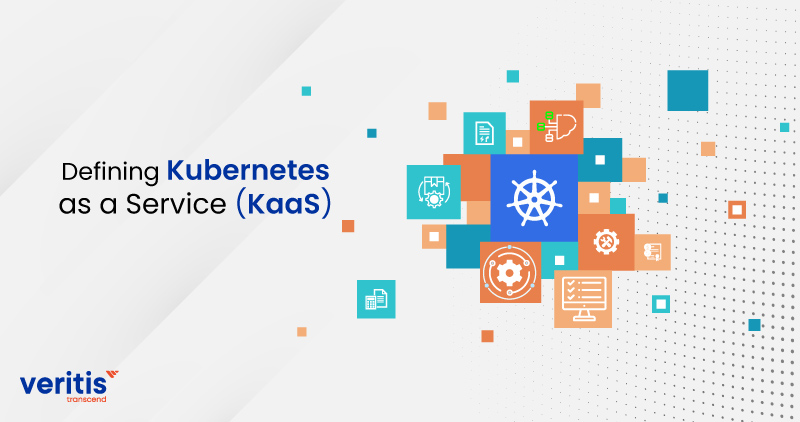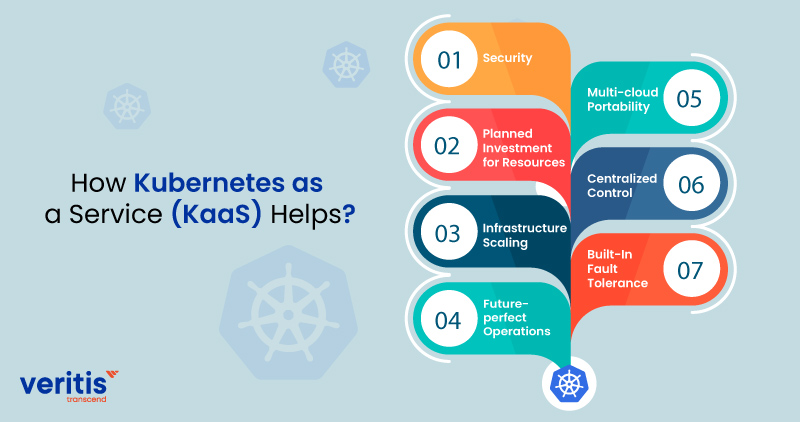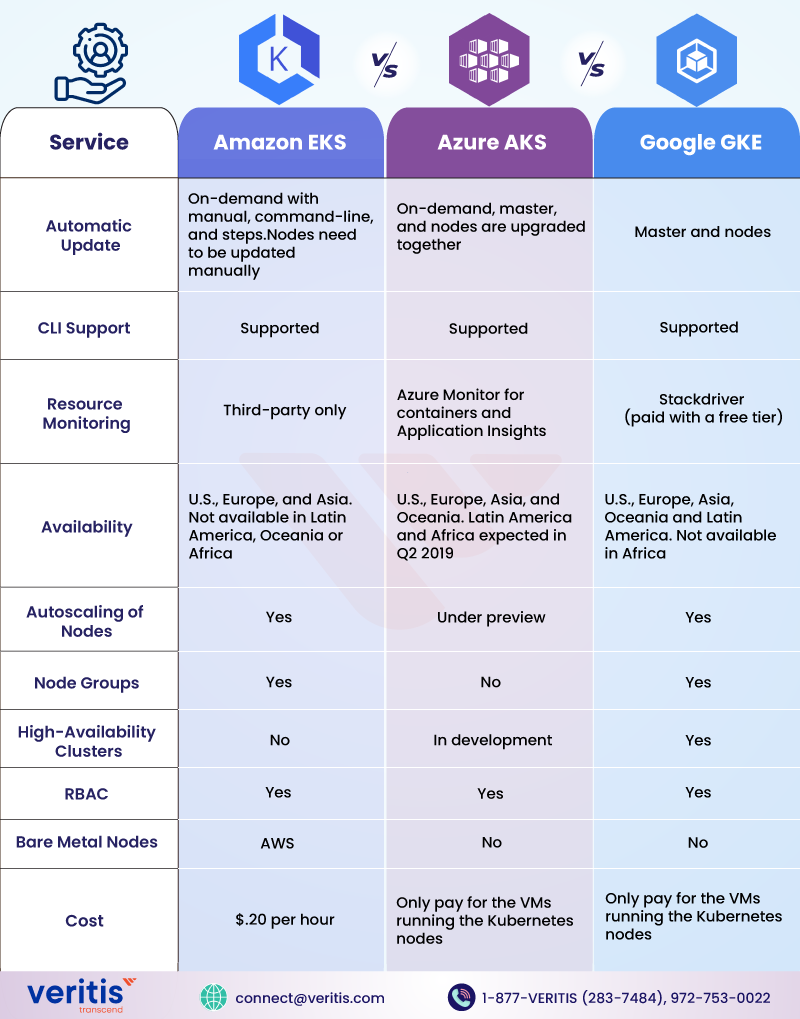
The speed of application development and delivery is where the industry’s success lies in modern IT.
The modern IT industry has been transforming to achieve that maturity level for enhanced app delivery. One technology that made this process easier is ‘Containers’.
Container-based architecture, as a lightweight model, has simplified the application development and created enough scope for independent and portable applications.
Containerization has become increasingly popular over the past few years as businesses look for ways to build and deploy applications faster and more efficiently. Containers provide a lightweight, portable way to package applications and their dependencies, making moving them from development to production environments easy. However, containerization also introduces new deployment, scaling, and management challenges. That’s where Kubernetes comes in.
As a lightweight model, container-based architecture has simplified application development and created enough scope for independent and portable applications. But the success of container architecture is purely dependent on the tools and resources associated with it, majorly Kubernetes and Docker.
Kubernetes-as-a-Service (KaaS) is a cloud computing model that provides a managed environment for deploying, managing, and scaling Kubernetes clusters. Kubernetes is an open-source container orchestration platform that automates containerized applications’ deployment, scaling, and management. KaaS is designed to simplify the deployment and management of Kubernetes clusters, allowing businesses to focus on their applications rather than the underlying infrastructure.
While every technology service in the advanced stage is transforming into the ‘as a service’ model, Kubernetes is also gaining popularity as the Kubernetes-as-a-Service (KaaS) owing to its wide range of benefits to the container ecosystem.
Defining Kubernetes as a Service (KaaS)

Kubernetes is a container orchestration platform that automates many tasks in deploying and managing containers at scale. It provides a way to deploy and manage containerized applications across a cluster of machines, providing high scalability and availability. However, Kubernetes can be complex to set up and manage, especially for organizations without a dedicated DevOps team.
This is where Kubernetes-as-a-Service comes in. KaaS providers offer managed Kubernetes clusters that handle many of the complexities of running Kubernetes at scale. Kubernetes as a Service (KaaS) is a technology solution that offers expert support in Kubernetes (K8) services, helping customers shift to cloud-native-enabled K8-based platforms and also managing the lifecycle of Kubernetes clusters.
This primarily includes the migration of workloads to K8 clusters along with their deployment, management and maintenance on the consumer data center.
Useful link: Managing Kubernetes Applications Through Terraform and AWS EKS
Why Kubernetes as a Service?
Most organizations are increasingly moving their workloads to container platforms to achieve a competitive edge in the digital trend. But managing these containerized workloads is challenging with integrating container orchestration platforms.
One of the critical features of KaaS is container networking. Kubernetes provides a powerful networking model that allows containers to communicate with each other across a cluster and with external services. In addition, KaaS providers offer managed networking solutions that simplify the configuration and management of Kubernetes networking, allowing businesses to focus on their applications rather than the underlying infrastructure.
In a bid to achieve a competitive edge in the digital trend, most organizations are increasingly moving their workloads to container platforms.
But managing these containerized workloads is not an easy task without integrating container orchestration platforms.
At this point, Kubernetes offers to extend support as the market’s leading container orchestration tool. These containerized workloads can be applications or componentized into microservices (hosted by containers), API servers, storage units, and backend entities.
Managing them at scale, along with timely updating of stacks, in line with policy changes and at the pace of innovation may be a herculean task without the all-around expertise support. And that comes as the Kubernetes as a Service (KaaS) model as a holistic approach to managing containerized workloads.
Useful link: Kubernetes Adoption: The Prime Drivers and Challenges
How Kubernetes as a Service (KaaS) Helps?

KaaS offers custom solutions keeping in view the organization’s budgetary constraints and data center capacity.
1) Security
KaaS ensures a policy-based user management system giving infrastructure access to the users as per their business requirements. During the process, KaaS providers follow the necessary security policies to ensure that security is not compromised. Whereas normal Kubernetes implementation has API servers exposed to the internet, thus being vulnerable to possible security threats.
2) Planned Investment for Resources
Be it anything, for managing KaaS terminals or physical resources to handle storage and networks within the infrastructure, a customized KaaS solution presents an overview of entire existing architecture and enables organizations to plan investment for their resources perfectly.
3) Infrastructure Scaling
The high-level automation possible with KaaS makes it easy to scale infrastructure at any point to any level. Kubernetes provides a way to scale containerized applications horizontally by adding or removing nodes from a cluster. KaaS providers make it easy to scale Kubernetes clusters up or down as needed, providing high scalability and flexibility. This is particularly important for businesses with rapidly changing workloads, as they can quickly scale up or down to meet demand. This saves time, resources, and the admin team’s efforts responsible for the task.
4) Future-perfect Operations
Container-based workload management demands continuous and rolling updates. Kubernetes can suffice this requirement as an orchestration tool. However, this strategy may not fit in specific organizations’ data center use cases as best practices are still evolving to catch up with the innovation speeds.
KaaS can address this challenge with its pre-defined policies and procedures that can be customized to the changing needs in all organizations with Kubernetes.
5) Multi-cloud Portability
Given their portable nature of container applications, container applications will have to run in both private clouds and public clouds in the multi-cloud era. Moreover, access to existing apps will be shared in the multi-cloud environment.
In such a situation, KaaS providers manage and portability apps, giving the developer the freedom to focus on building apps.
Kubernetes-as-a-Service is also well-suited to hybrid environments. Many businesses have complex IT environments, including on-premises, public cloud, and private cloud resources. KaaS providers offer managed Kubernetes clusters that can run on various infrastructures, from on-premises data centers to public cloud providers like AWS, Azure, and Google Cloud Platform.
6) Centralized Control
KaaS offers control to admins to manage Kubernetes clusters from a single UI terminal. This way, admins enjoy full visibility of all contents/components of all clusters and can also monitor their performance continuously.
They may also apply different frameworks to K8 stack, trigger alerts to K8 clusters, and add security patches to detect possible vulnerabilities. Admins can connect with any container using a single medium of contact.
7) Built-In Fault Tolerance
Another benefit of KaaS is its high availability. Kubernetes provides built-in fault tolerance and self-healing capabilities, making it highly resilient to failures. However, managing a highly available Kubernetes cluster requires significant expertise and resources. KaaS providers handle many challenges of managing highly available clusters, providing businesses with a reliable and resilient infrastructure for their containerized applications.
KaaS also provides benefits in terms of DevOps productivity. Kubernetes requires significant expertise to manage effectively, and many organizations need help finding the resources they need to manage their clusters. KaaS providers manage many management tasks in Kubernetes, freeing DevOps teams to focus on more strategic tasks like application deployment and optimization.
Useful link: How to Optimize Kubernetes Autoscaler to Better Business
Kubernetes Services: AWS vs Azure vs Google Cloud
With the increasing adoption of Kubernetes services, Cloud service providers have become pivotal for providing advanced features to businesses to manage their Kubernetes clusters and applications easily.
Amazon Web Services (AWS), Microsoft Azure, and Google Cloud Platform (GCP) are the leading cloud platforms enterprises are deploying their Kubernetes workloads on.
Managed Kubernetes offerings from these three cloud giants are: Amazon Elastic Kubernetes Service (EKS), Azure Kubernetes Service (AKS), and Google Kubernetes Engine (GKE).
Here’s a comprehensive comparison of the three managed Kubernetes service offerings:

In Conclusion
More such benefits are part of KaaS offerings. KaaS is best suitable for organizations of all sizes with containerized workloads or planning to do so in the future. Adding to the efficiency of Kubernetes clusters, KaaS brings an overall improvement in your container infrastructure.
With the benefits Kubernetes brings, various companies are integrating Kubernetes into their infrastructure. The orchestration platform brings a lot to the table, and it is challenging to use all its advantages. This is one of the many reasons that most opt for Veritis to integrate Kubernetes with their infrastructure. Stevie Award winner Veritis has been the preferred choice for companies of various sectors. Be it aviation or services; we have brought solutions that meet the requirements of our clients. Reach out to us and learn more about how to benefit from Kubernetes.
Got Questions? Schedule A Call
Also Read:
- EKS Vs. AKS Vs. GKE: Which is the right Kubernetes platform for you?
- Kubernetes Vs. OpenShift: Which One Should You Choose?
- The State of Kubernetes 2020 Report: Kubernetes Adoption Stands at 48%
- DevOps Security: Challenges and Best Practices
- Derive ‘ROI’ from ‘DevOps’: An Overview of Performance and Metrics